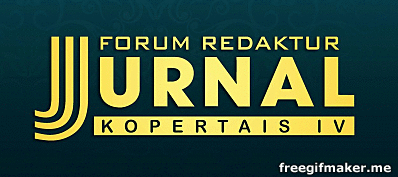NATIONALISM IN ISLAMIC LITERATURE
(Study of Mustafa al-Ghalayaini’s thought in Izzat al-Nasyi’in)

DOI:
https://doi.org/10.32665/alulya.v8i2.2051Keywords:
Islamic Literature, Izzat al-Nasyi’in, Nationalist, PesantrenAbstract
Zamakhsari Dhofier said that the Islamic classic book became the crucial component of Indonesia's Pesantren (Islamic boarding school). Various Islamic classic books were used to determine orientations of education in the Pesantren. However, all these orientations lead to one
main goal: to create qualified Muslims. This condition caused the weakness of nationalist character in the pesantren environment; even at the next level, it could produce radical movements. This is due to the absence of classic Islamic books explaining that a Muslim must have a nationalist character. The available literature is only oriented toward making Muslims as good Muslims, not as good citizens. The book Izzat al-Nasyi'in, written by Mustafa Al Ghalayaini, specifically came with nuances of nationalist character. This study aims to elaborate on the contents of the Izzat al-Nasyi'in. This qualitative research uses a socio-historical approach with an analytical descriptive method. The technique used is content analysis. The results of this study show that according to Mustafa Al Ghalayaini in Izzat al-Nasyi'in, morality (Akhlaq) is related not only to the divine aspect but also to nationalism aspects. He explained that one of the pillars to become a civilized country and a prosperous society is the existence of a nationalist character. So, He included the nationalist character as an integral part of a moral (Akhlaq)
education. Izzat al-Nasyi'in is necessary to be applied in every Pesantren in Indonesia.
Downloads
References
Al Ghalayani, M. (1913). Idhotun Nasyi’in. Al maktabah Al Amtsiliyah.
Al-Munawar, S. A. H. (2005). Aktualisasi Nilai-Nilai al-Qur’an dalam Pendidikan Islam. Ciputat Press.
Anderson, B. (1983). Imagined Communities: Reflections on the Origin and Spread of Nationalism. Verso Books. https://www.google.co.id/books?id=bWrnDwAAQBAJ
Aspinall, E., & Berger, M. T. (2001). The break-up of Indonesia? Nationalisms after decolonisation and the limits of the nation-state in post-cold war Southeast Asia. Third World Quarterly, 22(6), 1003–1024. https://library.fes.de/libalt/journals/swetsfulltext/12303106.pdf
Aziz, M. A., & Subandji, M. A. (2019). Nilai-Nilai Pendidikan Soft Skill dalam Kitab ‘Idhotun Nasyi’in.
Azra, A. (1999). Pendidikan Islam: Tradisi dan Modernisasi Menuju Milenium Baru. Logos Wacana Ilmu.
Birch, A. H. (1989). Nationalism and National Integration. Unwin Hyman.
Bruinessen, M. van. (1994). Pesantren and Kitab Kuning: Maintenance and Continuation of a Tradition of Religious Learning” inTexts from the Islands: Oral and written traditions of Indonesia and the Malay world: Ethnologica Bernica. Berne: University of Berne.
Departemen Agama RI. (2003). Pola Pengembangan Pondok Pesantren. Dirjen Kelembagaan Agama Islam.
Dhofier, Z. (1982). Tradisi Pesantren, Studi Tentang Pandangan Hidup Kyai. LP3ES.
Drake, C. (1989). National Integration in Indonesia: Patterns and Policies. University of
Hawaii Press. https://www.google.co.id/books?id=TVrGDwAAQBAJ
Fadli, M. R., & Sudrajat, A. (2020). KEISLAMAN DAN KEBANGSAAN: TELAAH PEMIKIRAN KH. HASYIM ASY’ARI. Khazanah: Jurnal Studi Islam Dan Humaniora, 18(1), 109–130. http://103.180.95.8/index.php/khazanah/article/view/3433
Husna, & Nur, S. (2017). Woman’s Role in the Family Institution: Discussions from Islamic Perspective. Journal of Social Science and Humanities, 12(3).
Kahalah, U. R. (1993). Mu’jam al Muallafin. Muassasah Ar-Risalah.
Kohn, H. (2017). The idea of nationalism: A study in its origins and background. Routledge.
Makmudi, M., Tafsir, A., Bahruddin, E., & Alim, A. (2019). Urgensi pendidikan akhlak dalam Pandangan Imam Ibnu Qayyim al-Jauziyyah. Ta’dibuna: Jurnal Pendidikan Islam, 8(1),17–37. http://ejournal.uikabogor.ac.id/index.php/TADIBUNA/article/download/1349/1255
Mali, F. X. G. T., Mite, M. Y., & Novitasari, I. (2023). Perbandingan Pemikiran Nasionalisme
Adolf Hitler, Sukarno dan Gamal Abdul Nasir. Jurnal Pendidikan Dan Konseling (JPDK), 5(1), 5176–5189. https://doi.org/10.31004/JPDK.V5I1.11827
Muin Abd., M., Faiqoh, Khozin, W., & Basri, H. H. (2007). Pendidikan Pesantren dan Potensi Radikalisme. CV. Prasasti.
Muqit, A. (2018). Profesionalisme Kiai dalam Pengelolaan Pondok Pesantren dalam Konteks Kemodernan. Jurnal Pendidikan Islam Indonesia, 2(2), 139–158. https://www.ojs.ppsibrahimy.ac.id/index.php/jpii/article/view/73
Murod, A. C. (2011). Nasionalisme” Dalam Pespektif Islam”. Citra Lekha, 15(2), 45–58. https://ejournal.undip.ac.id/index.php/cilekha/article/viewFile/5039/4573
Mursalin, A., & Katsir, I. (2010). Pola Pendidikan Keagamaan Pesantren dan Radikalisme: Studi Kasus Pesantren-pesantren di Provinsi Jambi. Kontekstualita: Jurnal Penelitian Sosial Keagamaan, 25(2). https://www.researchgate.net/profile/AyubMursalin/publication/335926118_Pola_Pendidikan_Keagamaan_Pesantren_dan_Radikalisme_Studi_Kasus_Pesantren-_pesantren_di_Provinsi_Jambi/links/5d8437c992851ceb791b0e8e/Pola-PendidikanKeagamaan-Pesantren-dan-Radikalisme-Studi-Kasus-Pesantren-pesantren-di-ProvinsiJambi.pdf
Murtasidin, B., & Alfajri, A. (2019). Nasionalisme Elit Pemuda Di Provinsi Riau. JDP (JURNAL DINAMIKA PEMERINTAHAN), 2(1), 1–13.
http://jurnal.univrab.ac.id/index.php/jdp/article/download/733/500
Muspawi, M. (2018). KH Hasyim Asy’ari: The Reformer of Islamic Education of East Java.
Jurnal Pendidikan Islam, 7(1), 147–163. http://ejournal.uinsuka.ac.id/tarbiyah/JPI/article/download/1819/1426
Musthopa, A. (2011). Nasionalisme Elit Pemuda. Yayasan Genta Hati.
Mustofa, M. (2019). Kitab kuning sebagai literatur keislaman dalam konteks perpustakaan pesantren. Tibanndaru: Jurnal Ilmu Perpustakaan Dan Informasi, 2(2), 1–14. https://journal.uwks.ac.id/index.php/Tibandaru/article/view/549
Neuendorf, K. A. (2017). The Content Analysis Guidebook. In SAGE. SAGE. https://books.google.co.id/books?hl=en&lr=&id=nMA5DQAAQBAJ&oi=fnd&pg=PP1&dq=step+of+content+analysis+in+methodology&ots=pHUqvblqas&sig=KOhGQT1uAzX2eg3SPfxE1WRyAY&redir_esc=y#v=onepage&q=step%20of%20content%20analysis%20in%20methodology&f=false
Nurzaman, S. S. (2006). Pembagian Kerja Internasional yang Baru Sebagai Faktor Pengembangkan Wilayah. Jurnal Perencanaan Wilayah Dan Kota, 17(2). http://download.garuda.kemdikbud.go.id/article.php?article=632139&val=7386&title=Pembagian%20Kerja%20Internasional%20yang%20Baru%20%20Sebagai%20Faktor%20Pengembangkan%20Wilayah
Oktaviani, R., Puspitawati, E., & Novianti, T. (2006). Dampak Ekonomi Penurunan Dukungan
Domestik Produk Pertanian Negara Maju dan Peluangnya Bagi Indonesia. Jurnal Manajemen & Agribisnis, 3(2), 89–101. https://jurnal.ipb.ac.id/index.php/jmagr/article/view/3338
Perry, M., Chase, M., Jacob, J., Jacob, M., & Daly, J. W. (2015). Western Civilization: Ideas, Politics, and Society, Volume II: From 1600. Cengage Learning. https://books.google.co.id/books?hl=en&lr=&id=jy5BBAAAQBAJ&oi=fnd&pg=PR5&dq=Perry,+Marvin,+et+al.+Western+Civilization:+Ideas,+Politics,+and+Society,+Volume+II:+From+1600.+Cengage+Learning,+2012.&ots=yG5ASWPW2F&sig=ryhSN8iB_2RuSf2Yn4kLR8M4jIw&redir_esc=y#v=onepage&q&f=false
Reid, A. (2001). Understanding Melayu (Malay) as a source of diverse modern identities. Journal of Southeast Asian Studies, 32(3), 295–313. https://www.cambridge.org/core/journals/journal-of-southeast-asianstudies/article/abs/understanding-melayu-malay-as-a-source-of-diverse-modernidentities/6E1353012FC5E6FB3403BEABE5411FCA
Saleh, M. H. (2011). Model pemaknaan nasionalisme masyarakat pulau sebatik Kalimantan Timur. Jurnal Borneo Administrator, 7(2).
http://www.samarinda.lan.go.id/jba/index.php/jba/article/download/74/86
Sanusi, A. (2018). The Contributions of Nawawi al-Bantani In the Development of National Law of Indonesia. Al-’Adalah, 15(2), 415–436.
http://www.ejournal.radenintan.ac.id/index.php/adalah/article/viewFile/3388/2503
Shafer, B. C. (1955). Nationalism Myth and Reality,. A Harvest Book Harcout.
Smith, C. P., Feld, S. C., & Franz, C. E. (2009). Methodological considerations: steps in research employing content analysis systems. Motivation and Personality, 515–536. https://doi.org/10.1017/CBO9780511527937.038
Stemler, S. (2001). An overview of content analysis. Practical Assessment, Research, and Evaluation, 7(1), 17. https://doi.org/https://doi.org/10.7275/z6fm-2e34
Stephenson, S. (1994). The Uruguay Round and Its Benefits to Indonesia. https://www.gtap.agecon.purdue.edu/resources/res_display.asp?RecordID=4
Syamsul, M. (2018). Education as a Foundation of Humanity: Learning from the Pedagogy of Pesantren in Indonesia. Journal of Social Studies Education Research, 9(2), 104–123. https://dergipark.org.tr/en/download/article-file/496759
Downloads
Published
Issue
Section
License
Copyright (c) 2023 Al Ulya: Jurnal Pendidikan Islam

This work is licensed under a Creative Commons Attribution-NonCommercial-NoDerivatives 4.0 International License.
 PDF Download: 238
PDF Download: 238













